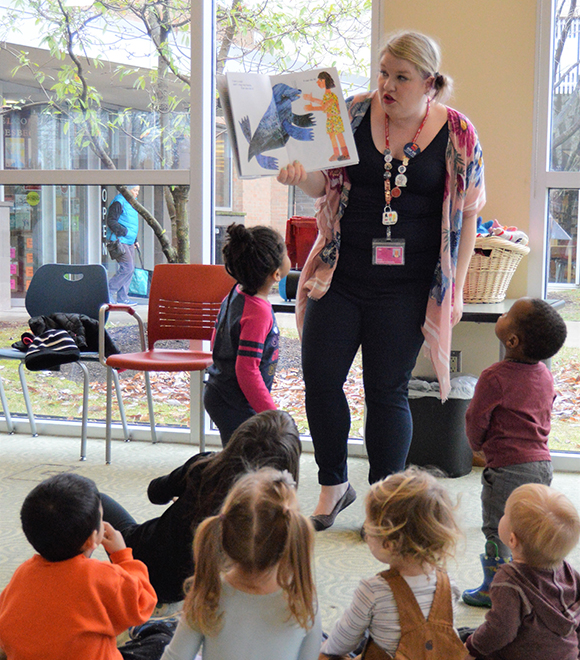The first time I remember talking to a doctor about my nerves, I was in the third grade.

I drew a picture about my first day of school, and it involved eating a Pop-Tart for breakfast and butterflies in my stomach that never seemed to disappear. I was put on my first anti-anxiety medication at some point that year, although I don’t remember taking it for very long.
Flash forward to my eighth-grade year: one week in November, those butterflies, still my constant companions, morphed into full-blown panic attacks. Face-and-limb-tingling, vision-melting, heart-pounding, meltdown-inducing panic attacks triggered by the very idea of having to walk into my school building. My brain was convinced that something awful would happen to me, and only hard-core anxiety pills could get me through that front door. I completely missed at least 25 days of school that year, and I spent even more in the school counselor’s office.
Eventually, with the help of therapy and Zoloft, my brain stabilized enough that I could mostly exist like a normal human being. Mornings, traditionally the most difficult time of day for my anxiety due to anticipation of what the day would bring, were still not my friend (stomach issues galore), but I could now make it through the day without a panic attack.
That is, of course, unless medical stories were brought up, especially those detailing something life-threatening. Then, I would just faint. Which I did in my Cincinnati Arts Scene class during my senior year at the Mount. Many, many apologies for disrupting your guest lecture, Dr. Murray. I love local history and was very into the stories of the bones at Music Hall, but my brain conspires against me.
However, I did not really manage to get my anxiety under control until a couple of years after graduating from the Mount. A medication change made a world of difference for me; I no longer felt like a zombie, no longer spent a ton of time babying my stomach in the mornings, and could actually enjoy being a twentysomething without freaking out about doing something new. Also, once I could finally distinguish between true anxiety and my instincts yelling at me about some of the not-so-great things (and people) in my life, I could make some desperately-needed adjustments.
But that is a story for another day. Instead, let’s throw a global pandemic into the mix!
While this introvert has definitely relished some extra time to herself, as one can imagine, COVID-19 has also brought extra difficulties with my old pal Anxiety. I had my first true panic attack in years upon returning home after the first trip to the grocery store during Stay at Home. I did manage to escape to the beach for a week last summer, but trying to eat at an outdoor restaurant turned into a big ol’ nope after seeing all the people milling around the seating area.
My work life, where I interact in-person with dozens and dozens of people on a daily basis? Proudly fulfilling during a time of great need for many, but utterly exhausting with the pandemic anxiety constantly underlying everything.
With these recent speed bumps that I know I am not solely experiencing, I would like to impart the advice that has gotten me through the pandemic and many previous hard times. It seems simple but is actually something that has proven to be naturally difficult for me. I write it now in case someone out there needs to remind themselves, too:
Be kind to yourself.
As much as you want to, you cannot expect perfection at all times. So you do not have the mental energy to do a hangout in whatever form after a crazy day? That is totally fine-- your friends will understand if they are actually your friends. Next, practice self-care in whatever form that may take. I took up counted cross-stitch a few years ago during a particularly rough patch because I could take out my anger by repeatedly stabbing a needle into fabric and eventually creating something beautiful. Also, loudly cursing at the inevitable embroidery floss knots and botched stitch counts is profoundly cathartic. Moreover, accept that you (along with everyone else) have quirks, and own them. I still faint if I cannot escape certain medical-themed conversations in enough time, and I have since learned that it is a crazy reflex due to my brain still trying to protect me from a threat. These instances make some hysterical stories to tell, though.
All in all, I think Eighth-Grade Claire would be semi-shocked to see her adult self doing some of the things I regularly do with no problem, especially talking in front of groups of people (even though they are usually mostly under three feet tall). If you or someone you know or love is going through a rough patch with anxiety, pandemic-related or not, know that it does get better. Sometimes you have to take things day-by-day, hour-by-hour, or minute-by-minute, and that is okay. And regardless of whether you feel anxiety or not, please be kind to yourself.
--Claire Schroeder, a 2012 History and English graduate, was an editor, copy editor, and writer for “Dateline” during her time at the Mount. She completed her Masters of Science in Library Science with a focus on youth services from the University of Kentucky in 2018. Now a children’s librarian for the Cincinnati and Hamilton County Public Library, she reads awesome picture books, exuberantly sings and dances to silly songs, and helps lots of people do lots of different things every day.

